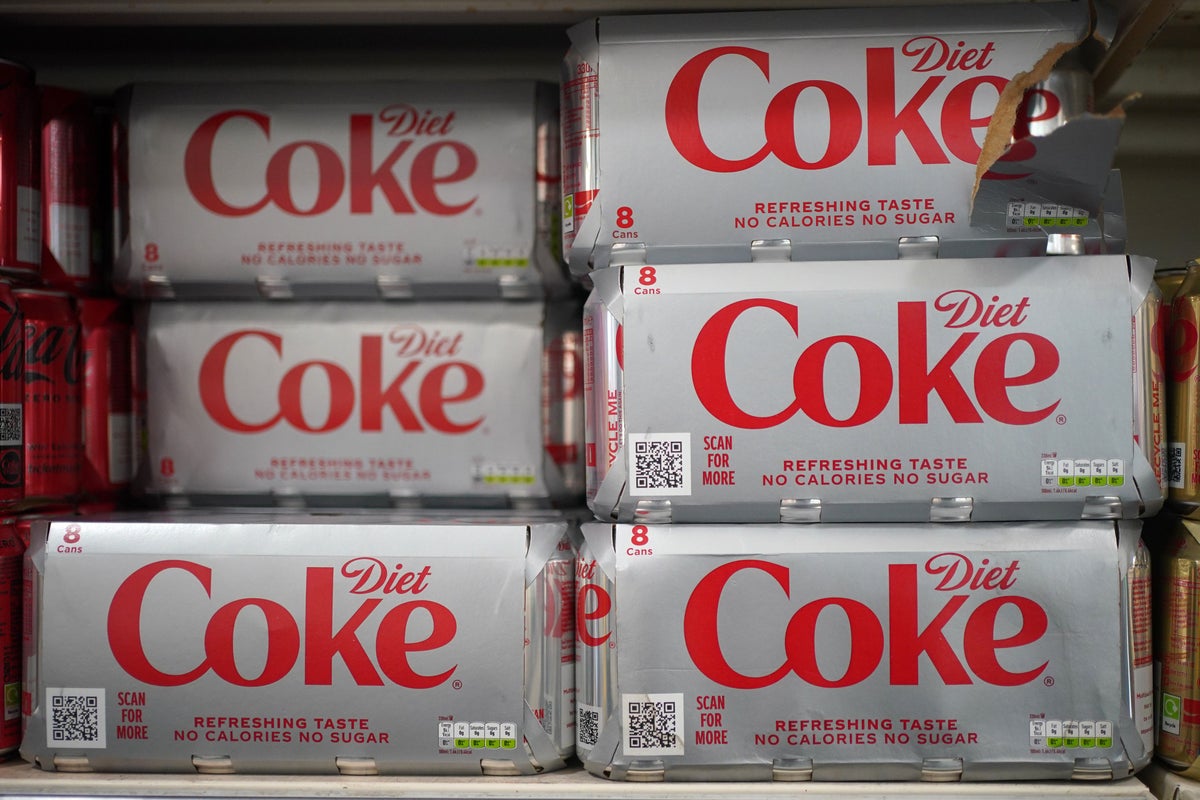
The food safety watchdog said it has no plans to freshly risk assess a widely used artificial sweetener that the World Health Organisation (WHO) has found to be a “possible” cause of cancer.
A panel of experts said sugar substitute aspartame is safe in limited quantities and has not amended its guidance on what amounts to a safe daily intake.
In a report released late on Thursday, the WHO’s International Agency for Research on Cancer (IARC) classified aspartame as “possibly carcinogenic to humans”.
The IARC has two more serious categories – “probably carcinogenic to humans” and “carcinogenic to humans”.
The International Council of Beverages Associations (ICBA) said the result strengthens confidence in the sweetener’s safety, saying it shows aspartame poses no more of a hazard than aloe vera and other regularly used substances.
We're not advising consumers to stop consuming (aspartame) altogether. We're just advising a bit of moderation— Dr Francesco Branca
The WHO and Food and Agricultural Organisation’s Joint Expert Committee on Food Additives (JECFA), which carried out a complementary study, retained its advice that it is safe for a person to drink 0-40mg per kilogram of body weight each day.
The UK’s Food Standards Agency’s (FCA) chief scientific adviser, Professor Robin May, said: “JECFA’s report supports the FSA’s view that aspartame is safe to consume at current permitted use levels.
“While the IARC report finds that evidence of an association between aspartame consumption and cancer in humans is limited, we welcome the WHO’s call for more and better studies to help increase understanding of this potential issue.
“There are no plans to carry out a new risk assessment on aspartame.”
Widely used as an artificial sweetener since the 1980s, aspartame is used in diet drinks, chewing gum, gelatine, ice cream, dairy products such as yoghurt, breakfast cereal, toothpaste and medications such as cough drops and chewable vitamins.
The substance is included on the ingredients lists for well-known products such as Diet Coke, Pepsi Max and Extra peppermint sugar-free gum.
The WHO said a person weighing 70kg would need to consume more than between nine and 14 cans of diet soft drink per day to exceed the daily guideline.
Both studies cited “limited evidence” and called for more research into the issue.
The WHO said it and the IARC will continue to monitor evidence and encourage independent research groups.
ICBA executive director Kate Loatman said: “This definitive conclusion by the world’s leading health and food safety experts once again affirms that aspartame is safe.
“After rigorous review, this landmark WHO and FAO finding further strengthens confidence in the safety of aspartame and will play a vital role in informing consumers as they consider all options to reduce sugar and calories in their diets.
“JECFA’s comprehensive conclusion that aspartame is safe builds on the overwhelming weight of scientific evidence for more than four decades, as well as positive determinations by food safety authorities in more than 90 countries.”
She added: “IARC, which is not a food safety agency, has now officially conceded that aspartame poses no more of a hazard than aloe vera and hundreds of other substances that it places in the same category based on evidence IARC itself describes as ‘limited’ and ‘less than sufficient’.”
People shouldn’t be worried about getting cancer from aspartame in food and drink— Dr Claire Knight, Cancer Research UK
Dr Francesco Branca, director of the WHO’s department of nutrition and food safety, said: “Cancer is one of the leading causes of death globally. Every year, one in six people die from cancer. Science is continuously expanding to assess the possible initiating or facilitating factors of cancer in the hope of reducing these numbers and the human toll.
“The assessments of aspartame have indicated that, while safety is not a major concern at the doses which are commonly used, potential effects have been described that need to be investigated by more and better studies.
“We’re not advising consumers to stop consuming (aspartame) altogether. We’re just advising a bit of moderation.”
Cancer Research UK’s senior health information manager, Dr Claire Knight, said: “The decision today puts aspartame in the same category as things like aloe vera and bracken ferns.
“There is no convincing evidence that it causes cancer in humans and people shouldn’t be worried about getting cancer from aspartame in food and drink.”
She added: “Your overall diet is more important than individual foods or ingredients for reducing cancer risk. So aim to eat a healthy, balanced diet, with more fruit, veg and wholegrains and cut back on red and processed meats and foods high in fat, sugar and salt.”







